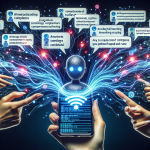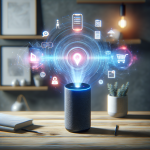Introduction to Marketing Automation for Startups
Modern startup success often hinges on efficiency — particularly when it comes to marketing efforts. Limited budgets, lean teams, and high competition make it vital for startups to optimize every opportunity. This is where marketing automation, especially when powered by Artificial Intelligence (AI), becomes invaluable.
AI-driven marketing automation allows startups to streamline repetitive marketing tasks, personalize engagement at scale, and make data-backed decisions with speed and accuracy. Let’s explore how startups can harness AI for smarter, faster, and more effective marketing automation.
Why Startups Need AI-Powered Marketing Automation
Startups face unique challenges in marketing:
- Limited Resources: Small teams can’t manually manage every channel or campaign.
- Need for Scalability: Growth requires systems that can automatically scale with demand.
- Data Overload: Startups often collect vast amounts of data but struggle to extract value from it quickly.
AI helps bridge these gaps by enabling:
- Smart Segmentation: Grouping audiences based on behavior, interests, and demographics to increase engagement.
- Predictive Analytics: Anticipating customer behavior for smarter targeting.
- Workflow Optimization: Automating multi-channel marketing campaigns across email, social media, and more.
Key AI Tools for Marketing Automation
AI tools offer various capabilities to automate marketing effectively:
1. Email Marketing Automation
Tools like Mailchimp or ActiveCampaign use AI to personalize subject lines, segment audiences, and optimize send times. Startups can set up logic-based triggers to nurture leads automatically based on user actions.
2. Chatbots and Conversational AI
AI-powered chatbots (like Drift or Intercom) enhance customer support and lead generation. They interact with users in real-time, gather data, and guide users through the sales funnel 24/7 — without human intervention.
3. Social Media Scheduling and Monitoring
Platforms like Buffer and Hootsuite incorporate AI to determine optimal posting times, suggest content, and analyze engagement trends. Startups can maintain an active social media presence without manual oversight.
4. Predictive Lead Scoring
AI helps prioritize leads based on their likelihood to convert. By analyzing behavior patterns and demographics, tools such as HubSpot and Salesforce Einstein identify high-potential opportunities to focus your sales and marketing efforts.
How to Implement AI Marketing Automation as a Startup
Step 1: Define Your Goals
Determine what you want to automate — email nurturing, lead scoring, customer engagement, etc. Focus on a few impactful areas to start.
Step 2: Choose the Right Tools
Evaluate tools based on your budget, integration needs, ease of use, and AI capabilities. Many platforms offer startup-friendly pricing or free tiers suitable for early-stage companies.
Step 3: Build Workflow Logic
Design workflows that trigger emails, chatbot sequences, or campaigns based on user actions. Use AI recommendations when available to optimize timing and messaging.
Step 4: Monitor and Optimize
Use AI analytics dashboards to measure performance. Tweak your workflows based on insights — AI can also suggest improvements based on A/B testing results or engagement patterns.
Benefits of AI Marketing Automation for Startups
- Increased Efficiency: Reduce manual work and focus on strategic growth.
- Scalable Campaigns: Run large-scale marketing campaigns with a small team.
- Personalized Experiences: Improve customer satisfaction with relevant content and messaging.
- Data-Driven Decisions: Make smarter decisions faster using AI insights.
Challenges and Considerations
While AI marketing automation offers powerful benefits, startups should also consider:
- Initial Setup Time: Implementing tools and workflows take upfront effort.
- Data Privacy: Ensure compliance with data protection regulations like GDPR.
- Learning Curve: Teams may need time to fully leverage AI capabilities.
Conclusion
AI-powered marketing automation is no longer a luxury — it’s a necessity for startups that want to stay competitive and agile. By automating key marketing tasks, personalizing customer journeys, and leveraging actionable insights, startups can punch well above their weight. Whether you’re launching your first product or scaling a growing business, adopting AI-enabled marketing automation can drive meaningful, measurable results.






